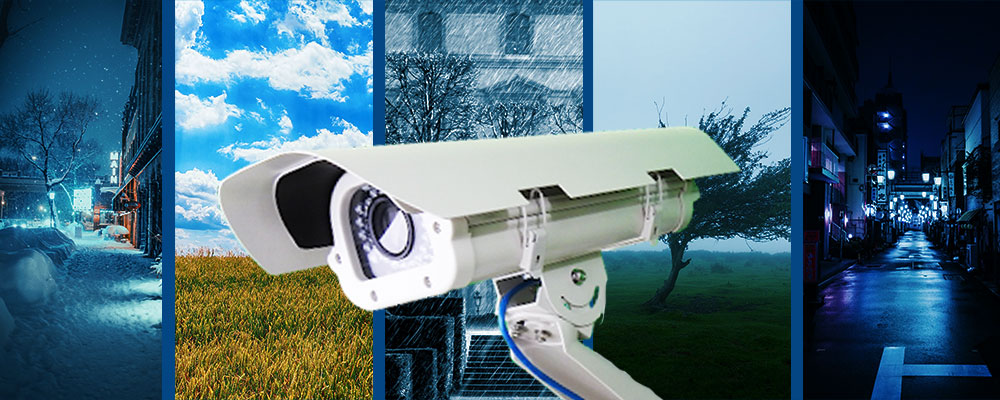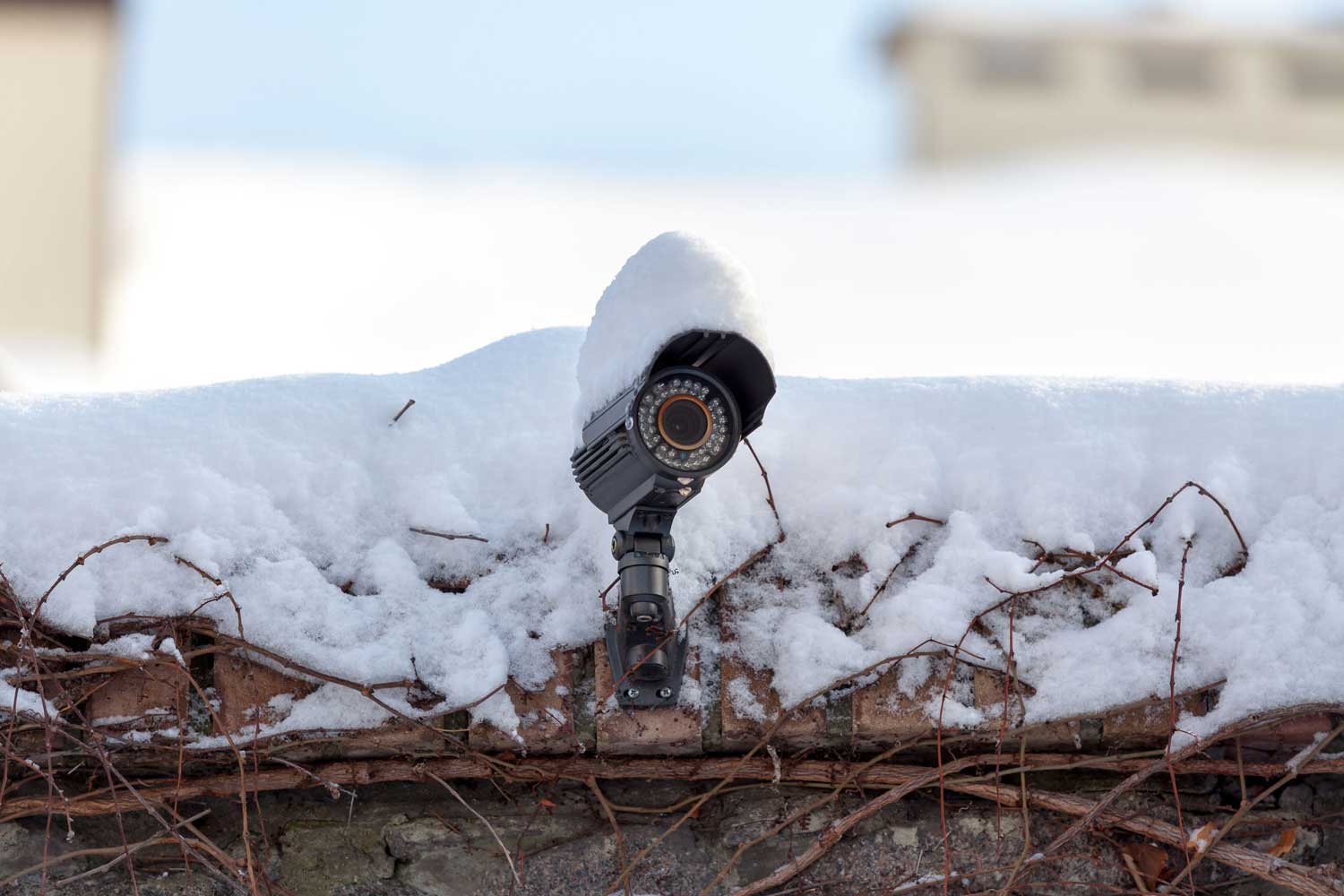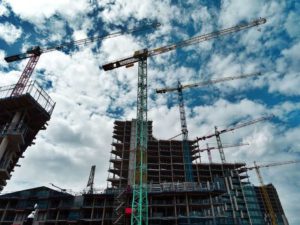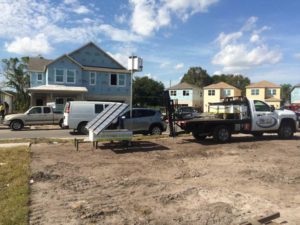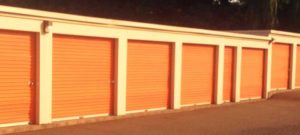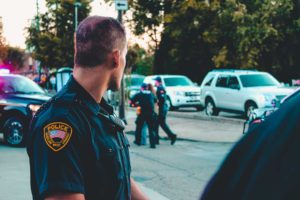In 2020 alone, there were 22 separate billion-dollar weather disasters across the USA. From wildfires to hurricanes, Mother Nature’s might can easily destroy security cameras that aren’t rated for outdoor use. You might be tempted to forego outdoor security cameras entirely, only keeping your surveillance in the relative safety inside your building. However, that too would be a mistake; outdoor security cameras deter crime by simply existing.
One study showed most criminals look for the presence of surveillance cameras and half would move on if they saw them outside a business.
The best option, then, is to invest in weatherproof security cameras that can remain outside a building while standing up to almost any weather.
What is a Weatherproof Security Camera?
A weatherproof security camera is a surveillance camera that usually comes with a weatherproof housing or cover. The goal is to keep out dust, moisture, or other elemental conditions that can damage the internal components of the equipment. Some of these housings are even rated “vandal-proof” to make tampering with the camera less likely.
A note to do-it-yourselfers: You cannot simply build a storage unit around an indoor-rated security camera to make it weatherproof. If the camera isn’t rated for the outside, it will eventually fail. We recommend using a weatherproof security camera installed in a sheltered area where it has the added protection of a roof overhang.
A weatherproof housing on your outdoor security camera can help it withstand difficult weather conditions. This makes sense today for all kinds of reasons. It’s true that a weatherproof security camera can’t protect your business from a tornado, wildfire, or flood. It can, however, withstand the harshest weather conditions and still do its job.
Weatherproof cameras:
- Reduce normal wear and tear of the camera components. This includes keeping dust, snow, or rain from getting into the camera and damaging its interior parts.
- Function well all year long, during hot summers and freezing winters. Excessive heat, torrential rain, freezing snow—no problem.
- Are very important in climates where regular bad weather is common. For example, rain in the Pacific Northwest, snow in Minnesota, heat waves in Arizona, and more.
Persistent condensation and wind do not create a threat to waterproof security cameras. However, not all of these cameras are created equal. Each is equipped with an environmental rating that indicates its suitability for outdoor conditions.
What Does a Camera’s IP Rating Mean?
The IP (ingress protection) rating on a security camera is an international standard. It illustrates the camera’s ability to withstand harsh conditions. The rating system depends on the conditions it’s placed in. For example, will the camera withstand:
-
Dust and dirt blown about in an exposed windy area.
-
Snowmelt dripping off a roof.
-
Unintentional contact, such as a workplace where it may come into contact with employees, tools, or machines.
-
Human tampering.
-
Flooding
- The ratings range from 0 to 6 and 0 to 8, respectively, with 6 and 8 the highest (and best).
- The first number designates how the camera withstands dust and dirt.
- The second number designates how the camera withstands water/fluids.
- There may be a third digit designating how tamper-proof the camera is.
Here are some examples so you see the IP rating in action:
- IP66 security cameras have full dust coverage and are safe from rain, but won’t withstand immersion in water.
- IP67 security cameras have full dust protection and can even withstand a short dunking in water in addition to rain.
- IP68 security cameras offer full dust coverage and can be immersed in three feet of water and still function.
We recommend talking with your security company about the level of weatherproofing for your outdoor security cameras. Firms like Pro-Vigil are highly experienced in designing individualized surveillance plans based on your needs.
Weatherproof vs. Waterproof Security Cameras
You might see cameras advertised as “weatherproof” or “waterproof.” These marketing terms may or may not reflect the IP rating of the camera.
“Waterproof” should designate a camera that withstands immersion in water. However, it’s the IP scale that you should look at. An IP of “8” will allow your camera to stand up to flooding or being dropped into a pool.
“Weatherproof” is a little simplistic, given the variance in weather these cameras can handle. Look at the IP rating instead of relying on this non-scientific lingo. Think about your business and the weather the camera will be placed in. Do you have:
- A Chicago car dealership that must withstand extreme snow?
- A western state oil pipeline that withstands extreme heat and cold?
- An apartment complex with a lot of human activity, including pool splashing?
The point is that there is a weatherproof security camera out there that is right for your business. Once you’ve selected the right IP rating for your business you have another decision to make. Do you want wired or wireless for your outdoor security camera?
Wired vs. Wireless Outdoor Security Cameras
Weatherproof cameras can be wired or wireless, depending on your needs. The big advantage of a weatherproof wireless security camera is that they can be placed anywhere. They can also be mobile and move to wherever you need them to go.
Wireless outdoor cameras communicate via the cellular network. They’re also battery powered. You can connect them to solar panels for a virtually endless stream of information sent through the internet to wherever you need it to go. This is extremely beneficial for businesses located in an area where extreme weather conditions can cause power grid instability.
For example, say you own a construction firm working in the northern part of the U.S. You should look for a weatherproof security camera that not only can withstand extreme cold, but also a wireless camera that can handle power outages.
Why Are Weatherproof Security Cameras Important?
For business owners, adequate security surveillance necessitates the use of both indoor and outdoor cameras. However, we know the weather is increasingly dicey in many parts of the country.
Weatherproof security cameras are tested for varying levels of harsh environmental conditions. They can keep your business safe during extremes ranging from above 100-degree temperatures to well below zero. You rely on these tools to monitor your business at all times.
Pro-Vigil works with our clients to design the perfect surveillance system for our imperfect world. We can help you find the right mix of video and human surveillance to help your business, employees, and customers stay a little safer every day. Talk with our team today about your options.

